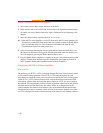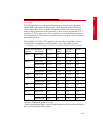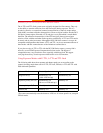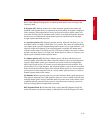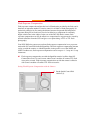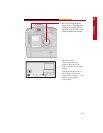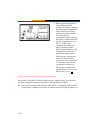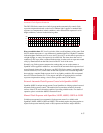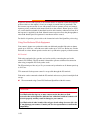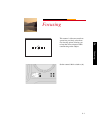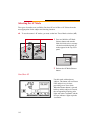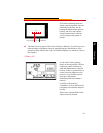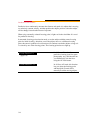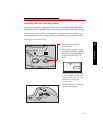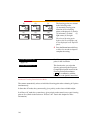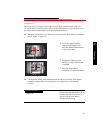
8-58
In general, manual flash exposure is an excellent choice in situations where the speedlite’s
position relative to the subject is fixed, for example in certain kinds of portraiture. The
best camera exposure modes for use with manual flash are aperture-priority and manual.
Aperture-priority combined with manual flash forces the camera’s shutter speed to 1/250
sec., and is therefore suitable for hand-held work in dark situations where most if not all of
the exposure is supplied by the flash. Manual camera exposure allows the photographer to
select both shutter speed and aperture for maximum creative control.
For details of operation, please refer to the instruction book of the Speedlite you’re using.
Using Non-Dedicated Flash Equipment
Your camera’s shutter can synchronize with non-dedicated portable flash units at shutter
speeds up to 1/250 sec., and with most studio strobes up to 1/125 sec. Before use, fire the
flash unit at various shutter speeds to make sure it synchronizes properly with the camera.
PC Terminal
Flash units equipped with a synchro cord can be used by connecting the cord to the
camera’s PC terminal. The PC terminal is threaded to prevent accidental disconnection
when using compatible PC flash synchro cords.
The PC terminal provides only an X-sync contact and synchronizes at all shutter speeds up
to 1/125 sec.
TTL automatic flash exposure control is not possible through the PC terminal.
Flash units can be connected to both the PC terminal and accessory shoe for multiple flash
set-ups.
☛ We recommend using Canon EOS dedicated Speedlites with this camera.
CAUTION:
Use of flash units (having two or more contacts on the hot shoe) or flash
accessories that are designed for dedicated use with other brands of cameras will
not work properly and may result in damage to your camera.
Use of flash units of other brands with a trigger circuit voltage in excess of 6 volts
DC may damage your camera. Consult your service representative to confirm the
compatibility.



